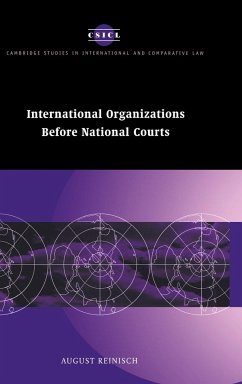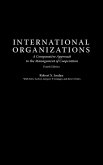A radical, empirical investigation of how national courts 'react' to disputes involving international organizations. Through comprehensive analysis of the attitudes and techniques of national courts and underlying political motives, Professor Reinisch first describes various legal approaches that result in adjudication or non-adjudication of disputes concerning international organizations. Secondly he discusses policy issues pro and contra the adjudication of such disputes. His study then scrutinizes the rationale for immunizing international organizations from domestic litigations, especially the 'functional' need for immunity, and substantially debates the implications of a human rights-based right of access to court on immunizing international organizations against national jurisdictions. Finally he identifies contemporary trends, seeking to ascertain whether a more flexible principle exempting certain types of disputes from domestic adjudication might substitute for the traditional immunity concept, which would simultaneously guarantee the functioning and independence of international organizations without impairing private parties' access to a fair dispute settlement procedure.
Table of contents:
Part I; Part II. V. Policy issues - pro and contra having national courts decide disputes involving international organizations; A. Rationales for judicial abstention.
This book investigates national courts' 'reaction' to disputes involving international organizations. It weighs issues pro and contra their adjudication, scrutinizes the rationale for immunizing international organizations from domestic litigations, and assesses the possible substitution of the traditional immunity concept with a more flexible principle exempting certain disputes from domestic adjudication.
This book investigates how national courts 'react' to disputes involving international organizations.
Table of contents:
Part I; Part II. V. Policy issues - pro and contra having national courts decide disputes involving international organizations; A. Rationales for judicial abstention.
This book investigates national courts' 'reaction' to disputes involving international organizations. It weighs issues pro and contra their adjudication, scrutinizes the rationale for immunizing international organizations from domestic litigations, and assesses the possible substitution of the traditional immunity concept with a more flexible principle exempting certain disputes from domestic adjudication.
This book investigates how national courts 'react' to disputes involving international organizations.








